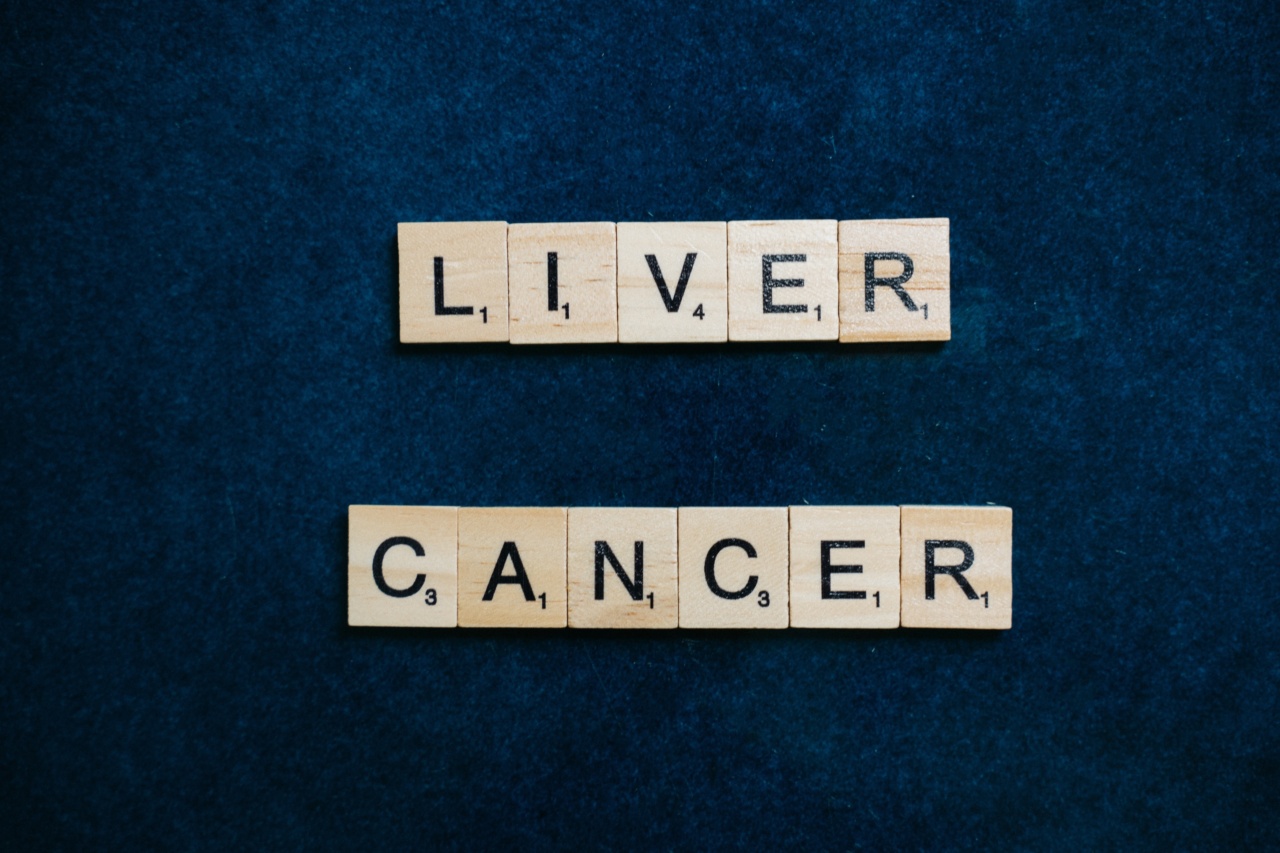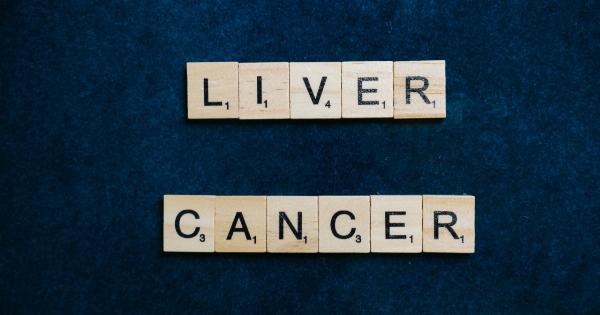Liver cancer, also known as hepatocellular carcinoma, is a form of cancer that starts in the cells of the liver. It is a serious and life-threatening condition, which occurs when abnormal cells in the liver begin to grow uncontrollably.
Liver cancer can spread to other parts of the body and can be difficult to treat if not detected early. There are various factors that can increase the risk of developing liver cancer, one of them being excessive alcohol consumption.
The Link Between Alcohol and Liver Cancer
Excessive alcohol consumption is a known risk factor for liver cancer. The liver is responsible for metabolizing alcohol, and heavy drinking over a prolonged period can lead to liver damage and inflammation.
This chronic liver inflammation, known as hepatitis, can progress to more serious conditions such as cirrhosis and eventually, liver cancer.
When alcohol is consumed, it is broken down in the liver by enzymes. However, heavy or prolonged drinking can overwhelm the liver, causing damage to liver cells. Over time, this can lead to the development of scar tissue, known as liver cirrhosis.
The Role of Cirrhosis in Liver Cancer
Cirrhosis is a late-stage liver disease characterized by the presence of scar tissue that replaces healthy liver tissue. It is commonly caused by excessive alcohol consumption, hepatitis B or C infections, and nonalcoholic fatty liver disease (NAFLD).
People with cirrhosis have a significantly higher risk of developing liver cancer.
The scar tissue formed in cirrhosis can disrupt the normal functioning of the liver, impair the liver’s ability to regenerate, and increase the risk of liver cancer development.
Chronic inflammation and the ongoing repair process can create an environment that promotes the growth of cancer cells.
Alcohol Metabolism and Carcinogens
When alcohol is metabolized in the liver, one of the byproducts is acetaldehyde, a toxic substance. Acetaldehyde can cause damage to the DNA within cells, leading to mutations that can promote the development of cancer.
Additionally, alcohol can increase the production of reactive oxygen species (ROS) in the liver. ROS are chemically reactive molecules that can cause oxidative stress and damage to DNA, proteins, and lipids within cells.
This oxidative stress can further contribute to the development of liver cancer.
Interaction with Other Risk Factors
Excessive alcohol consumption can interact with other risk factors for liver cancer, such as hepatitis B or C infections. Chronic alcohol use can worsen the liver damage caused by viral hepatitis, accelerating the progression towards liver cancer.
The combination of alcohol and viral hepatitis significantly increases the risk of developing liver cancer compared to either factor alone.
In addition to hepatitis viruses, other risk factors for liver cancer include obesity, diabetes, nonalcoholic fatty liver disease (NAFLD), and certain inherited liver diseases.
Alcohol can exacerbate these risk factors, increasing the likelihood of liver cancer development.
Protecting the Liver from Alcohol-Related Liver Cancer
Reducing or eliminating alcohol consumption is crucial in preventing alcohol-related liver cancer. The risk of developing liver cancer decreases significantly after stopping alcohol consumption, especially if done at an early stage of liver damage.
Additionally, hepatitis B and C vaccinations can provide protection against viral hepatitis, reducing the risk of liver cancer. Screening for hepatitis B and C is important, as early detection and treatment can prevent further liver damage.
A healthy lifestyle, including a balanced diet and regular exercise, can also contribute to overall liver health.
Maintaining a healthy weight, managing diabetes, and avoiding the excessive consumption of processed foods and sugary beverages can reduce the risk of fatty liver disease and, consequently, liver cancer.
Conclusion
Excessive alcohol consumption is strongly linked to the development of liver cancer. The liver plays a crucial role in metabolizing alcohol, and chronic alcohol abuse can lead to liver damage, cirrhosis, and ultimately, liver cancer.
Risk factors for liver cancer, such as viral hepatitis, obesity, and diabetes, can interact with alcohol consumption, further increasing the likelihood of liver cancer development.
To protect the liver from alcohol-related liver cancer, it is vital to reduce or eliminate alcohol consumption, get vaccinated against hepatitis B and C, screen for viral hepatitis, and maintain a healthy lifestyle.
Early detection and prevention are key in combating this life-threatening cancer.































